- Home
- Kathryn Lasky
The Rise of a Legend Page 3
The Rise of a Legend Read online
Page 3
I followed Gilda back into the deepest part of the hollow, where she was wrestling with a small nest of thread worms.
“What’cha want, dearie?” She turned around.
I just blurted it out. “I’m scared that I’ll make a mess of landing on that branch outside of Moss’s hollow and everyone will laugh at me. Everyone flies so much better than I do.”
“Oh, nonsense, Lyze. You’ll do just fine.”
“No, I won’t!”
“You won’t if you say you won’t. You must believe you will, lad.”
“But how can I believe I will if I am … am … am …”
“Not sure?”
“Yes. Not sure. How do you believe if you’re not sure?”
“Now that is a good question. Some creatures say faith is believing what you cannot see or prove. But I believe that faith is the power to imagine. If you can imagine the feel of the air beneath your wings, if you can picture in your mind’s eye your plummels4 brushing the sounds from the night and quieting your passage, then you will fly as a well as any owl.”
Gilda was right, so right!
“My goodness,” Mum gasped as I landed on the branch.
“I’ve never seen anything like it!” my father said, his voice tinged with awe. “You flew as if every single one of your plummels had budged and they haven’t yet, have they? They’re always the last to come.”
“No, I don’t think they have,” I replied.
“Then how did you do it? You were so quiet,” Mum asked.
“Oh, I just imagined the plummels.”
“Imagined?” Both my parents said the word at once, as if they had never heard it before.
Moss’s hollow was at least twice as large as ours. This was to be expected, I suppose, seeing as Snowies are more than twice the size of Whiskered Screeches. From their heads to their tails, they measure the length of three Screeches, end to end. But the thing I remember best is how wilfed Moss was. He was all scrunched up at his mum’s legs like a chick trying to get warm under her belly feathers. This was Moss? The gifted, talented Moss? I was astounded. But I had forgotten how I had seen him wilf the day his mum first arrived. Now he seemed not just puny, but frightened and scared. Yes, frightened! The mighty Moss, who just a few nights before had returned from his triumphant circumnavigation of the Hock! What was wrong with him? He seemed to be cowering, and every time his mum moved, so did he. It was as if he couldn’t be an inch from her. Was Moss a mama’s owlet?
The visit started out with the requisite small talk. Profuse thanks for the two voles my parents had brought, more talk about Moss’s amazing circumnavigation, but then as always, the conversation turned to the war.
“Yes, Hrenna had a time of it up around Little Hoole.”
“They have a few small stealth units wreaking havoc up there. They hide out in the fissures.”
“Snow leopard terrain,” my father said. I was immediately alert. Snow leopards had fascinated me, and Gilda had once told me a twixt-time story about them. They could not be found as far south as Stormfast and lived in the high mountain ranges above the H’rathghar glacier. Fierce, with fangs nearly as long and sharp as ice scimitars, and exceedingly swift, they were, my father said, “Built to kill.” There was a pause in the conversation as Hrenna and Arne, her mate, exchanged glances. Arne gave her a barely perceptible nod, and I noticed Moss begin to quiver.
“Yes, built to kill,” Arne said.
Then Hrenna spoke in a rasping whisper. “And so am I!” She lifted her port leg. The foot was blackened and the four talons fused together into one mangled lump. I must have looked shocked, for she turned to me and then to Moss. “Don’t fret,” she said cheerfully. “You’re never really tested until you’re in the field of battle, and you young’uns will both make wonderful soldiers. I know it! Don’t you, Rask? Don’t you, Ulfa?”
I had to fight hard now not to wilf in front of everyone’s eyes. I noticed that Moss didn’t look too chipper, either, which made me feel a tad better.
“It wasn’t the snow leopards that got me, though. It was two Eagle Owls. They thought they had me when they came at me with a fizblister….”
The grown-ups kept talking, but Moss was wilfing so fiercely I thought he might simply vanish. Now I understood. He was overwhelmed with shame! Yes, shame at the hideous deformity of his mum’s talons and how they looked as if they had melted in the fires of hagsmire. The grown-ups were consumed with talk of war and not paying a bit of attention to us.
“This foot has become a weapon in its own right. I swear it’s as powerful as one of those gigantic snow leopard paws. The force I can deliver with it is amazing. After I healed and was battle ready again, I managed to crack one of the enemy Eagle Owl’s starboard wings nearly in two in an ambush half a moon later.” She raised the foot with the fused, blackened talons. It looked like a club.
“An Eagle Owl!” I heard my parents exclaim. An Eagle Owl had a wingspan at least half again as big as a Snowy’s.
She chuckled a bit. “Now I lead a commando unit called the Flying Leopards. Did it with this! It’s better than an ice ax. One might say this wound has made me ‘built to kill.’” Hrenna shook the mangled talon.
Moss had clamped his eyes shut. It was clear that he was a bundle of fear and shame. I lofted myself into the dim light of the hollow and flew toward my mum.
“What is it?” she asked. I gave a small tug on her bandanna. “Oh, my, you want me to show off my battle scar, do you?” She chuckled, obviously pleased. “It’s not a competition, you know, dear. Hrenna and I both did our bit. That’s all a soldier can do.” No, it wasn’t a competition, but how could I explain that to Mum? I just wanted Moss to see that I knew what he had been feeling.
Moss sidled up to me and whispered, “I saw you arrive tonight. It was a beautiful landing. Better than any I’ve ever made. How soon do you think you might be ready for Dark Fowl?”
“I’m not sure. Why?”
“Because I’d like to fly there with you. It would be much more fun if we could go together.”
So it was on that night, in the hollow of the Snowies while our mums and das spoke of war and bloody battles, that Moss and I became best friends.
Shortly after our visit with Moss’s family, I attained that most significant flight mark for an owlet before going to Dark Fowl. I made my own trip to the Hock. Da was there to coach me but I already had a feel for the breezes and knew when to sheer off a boisterous draft. That evening, I soared for the first time. I seemed to have an instinct for the warm thermal updrafts, and what a thrill those silken billows of warm air were to ride! I didn’t even have to flap my wings once and yet I slid effortlessly through the starry night. As I soared, I could not help but think of Gilda. Her words about faith came back to me, about believing in what you cannot see.
Yes, I was flying, but I was experiencing something more than that on this beautiful night. Another kind of faith began to seep into my mind and as I flipped my head back to look at the star-dusted sky, I thought I could almost see the face of Glaux.
“Hock ho!” My da’s call split the night and then I saw it. The steep cliff that climbed out of the sea.
“What’s that?” I called back.
“What’s what?” Just off the cliff, the night was laced with iridescent threads of turquoise and greenish light. “Oh, yes, of course! Always a surprise the first time you see them. Diving snakes.”
“Great Glaux, snakes can fly?” I thought of Gilda immediately.
“Oh, no! No, never. They can swim, though, and they dive into the sea from their caves.”
My beak dropped open in amazement. I could never have imagined anything like this. “B-b-bu — b-bu — but how do they get back up the cliff again?”
“They crawl up, same way they slither up our trees in the grove.”
“But where do they live?”
“In the cliffs. They find nooks and crannies, and they burrow out others. Let me tell you, there is nothing stronger
than a Kielian snake. And you’ll see when we go to Dark Fowl — their fangs. They use them to hone the edges of the ice scimitars.”
“But Gilda and Mrs. Grinkle, they’re Kielian snakes. I’ve never seen their fangs.”
“Well, they keep them tucked away. Not much use for them in domestic service, really.”
“Can we visit the Hock snakes? I want to meet some.”
“Whatever for, lad?” Da looked absolutely dumbfounded. My facial feathers must have wilfed with disappointment, because he continued, “Well, I suppose it would be all right. But you know, they aren’t all that sociable. They don’t like company.”
“Will they bite me?”
“Oh, no! They’re not aggressive. They just like to keep to themselves, especially the ones on Hock. There’s a reason why they seek out the most Glaux-forsaken place on Stormfast. They like the isolation. I — I —” he stammered. I don’t think I had ever heard my da stammer but he seemed totally bewildered by me. He collected himself and started again. “I mean, say again why you want to meet them?”
“I’m just interested, that’s all. Another species, you know. Just curious.” How does one explain curiosity? “Uh — what if I just sort of went up and said hello?”
“I suppose so. The worst that could happen is that they wouldn’t say hello back,” my da said doubtfully.
That was all I had to hear. I was determined to meet a Kielian snake — and not one who worked as a nest-maid for my family. So, like Moss, we began a circumnavigation of the Hock. I didn’t just go around it, but scoured its entire vertical surface looking for a friendly face. There were indeed many faces — hundreds of them rose from the tumultuous sea and began their long, slow slither up the sheer cliff to the top where they could dive off again. The moon had begun to set, and their iridescent scales sparkled even more brightly in the darkening sky.
I tried saying hello and good evening to dozens of snakes while they whizzed by me on the plunge toward the sea. I said, “Gundin hagen” or just a quick “hagen” or sometimes “hagen, hordo.” “Hordo” was the Krakish word for “snake.” I assumed they spoke Krakish, the language of the Northern Kingdoms, and not some kind of snake language. I mean Gilda and Mrs. Grinkle spoke Krakish fluently. Surely, these snakes did even if they were unsociable. I began working the midsection of the cliffs more diligently, as there were a few crannies in which I could see the twinkling glimmer of scales.
“Hagen, hordo,” I said to a snake who poked his head out.
The snake whipped his head around. “Evening, snake?” he replied incredulously. “I know I’m a snake. I don’t need it confirmed by you. I mean, I don’t say ‘good evening, bird.’”
“Well, I’m not just a bird, I’m an owl — a Whiskered Screech to be precise.”
“And I am not just a snake, but a Kielian snake, a spotted azure-back to be precise.”
“Uh … what’s azure?”
“What’s azure? Are you serious? You don’t know what azure is?”
“If I were a snake, maybe I would.”
“If you were a snake …” he sneered. His eyes seemed not to blink exactly but slide with a glittering flash and then simply vanish. I would later learn that snakes do not have three eyelids as owls do — upper, lower, and then the wiper membrane — but only one, if indeed you could call it an eyelid at all. Their eyelids are composed of transparent scales that close either vertically or horizontally. There was a second flash and the snake’s eyes were back. The snake seemed to have gone through an odd transformation, almost a molting, not of his skin but of his attitude.
“I shall attempt to be patient.” The sneer was gone. It was not as if this snake had become all warm and fuzzy; it’s very hard to be warm and fuzzy if one is an elongated, legless creature with scales.
“Hoke’s the name,” the snake said.
“I thought this place was called Hock?” I asked.
“Me, idiot.” The eyes flashed again. “My name is Hoke. Hoke of Hock.” The sneer had returned. His voice seemed to curdle with contempt.
I was catching on. I could play his game, too. “Ah, I see! You’re trying to tell me you’re an idiot,” I parried. His mouth cracked open and he flung back his head, exposing the longest, sharpest fangs one might ever imagine, and croaked — not hissed, mind you, but croaked — this was how Kielian snakes laugh. But did I know he was laughing? I did not. I was scared out of my gizzard and began to back out of the cranny, nearly falling off the ledge before I could spread my wings.
“Come back! Come back!” he hissed. “I like you. You made me laugh.”
Let me just say this: When a Hoolian snake laughs, it can scare you to death. But I returned, for despite the laugh, there was a kindness in Hoke’s voice.
“Come in, come in. Make yourself at home,” he said with real warmth. “My nost.” He swung his head about. The “nost” was what Kielian snakes called their hollows, and this nost was much larger than I had anticipated.
“Do you live here by yourself?”
“No, my parents are off visiting relatives. My sisters and brothers are around someplace. Probably still diving.”
I looked about. “I didn’t realize these cliff nosts were so large.”
“They aren’t. We make them that way. We dig and tunnel with our fangs and heads.”
“I’ve never understood that.” I tried to picture Mrs. Grinkle digging through what appeared to be solid rock.
“No, you wouldn’t,” he said with a slight sneer, but I decided to let it pass.
“Why not?”
“Well, you’ve probably only been exposed to nest-maid snakes.”
“True.”
“And nest-maids really only need their tongues for vermin slurping, and their heads for whisking up dust and twigs and all matter of debris that litter owl hollows. ‘Tidy butts’ we call them.”
“But you’re snakes. You don’t have butts.”
“No kidding!” A smirk scrolled across his face. “Sometimes we borrow a little bit of language from other species, particularly body-part words. Try being legless, wingless, long, and tubular. We are not spineless, however. What a relief!”
“But even so, you dig through rock. How?”
To answer my question, the snake called Hoke began the most astounding sequence of shape-shifting acts imaginable.
“Well,” he said as his head flattened into a thick wedge with a new set of scales beginning to fringe the edges. “You’ve seen this, of course, in your nest-maids. The basic whisking or broom phase for cleaning owl hollows.” In truth, I had never really paid attention when Mrs. Grinkle or Gilda swept up. But they did have a secondary set of scales that seemed to gather around their necks, if indeed those long, wingless bodies had necks. “But have you seen this?” Hoke’s head swelled into a large, bulbous configuration. “Great for smashing lithite — that’s the kind of rock these cliffs are made of. Let me demonstrate.” There was a small chunk of rock nearby. “Watch this. Please note, I do a semi coil, as it gives me the right amount of heft for this size rock. A-one, and a-two, and a-three!” Within seconds, the rock had been reduced to smithereens, and a small dusting of scales drifted down among the chips. “Not to worry. The scales regenerate quickly. The rock doesn’t, however.”
Something slithered in the rear of the nost. There was a yawn and a childlike voice called, “Why did you wake me up?”
“Hellie, that you?”
“Yeah! Who else? You’re supposed to be snake-sitting me, remember? And instead, you’re just showing off.” A tiny little snake wriggled toward the shattered rock. “Great Hordox,5 you’re talking to an owl.”
Hellie was almost the same color as Hoke, but somewhat paler.
“Is she also a spotted azure-back?” I asked.
“Of course I am. I’m his sister!” She opened her mouth quite wide to announce this, and despite her small size, she had formidable fangs.
“Now you’re showing off,” Hoke said. “She just dropped her baby
fangs last night and these new ones came in today.”
“I am not!” she replied huffily.
“Just answer me one thing,” I said. “You never explained what ‘azure’ is. It’s a word I’ve never heard.”
“It’s a color!” Hellie squawked.
“Be patient, Hellie. He’s only an owl.”
“Duh!” she muttered.
Only, I thought, but let it pass.
Hoke swung his head toward me. “Azure is a shade of blue. It is closer to the color of the sky on a clear, cloudless day. But then there is cyan and cerulean — very close to azure and then cerulean lazuli and then turquoise and cobalt and violusia. And with the violusians, you have both your striated and your non-striated. The striated tend more toward the deep purple, the non-striated are more or less lavender. You see, there are over a thousand shades of blue for Kielian snakes. Our scales are actually a spectrum of all of these shades, but some of us are more azure while some tip toward the purple end of the spectrum.”6
I was almost dizzy from the recitation of the blue spectrum of Kielian snake colors.
“Did you show him your shim head? Do it!” Hellie urged. It was apparent that she was much more interested in her brother’s ability to reconfigure his head shape than in a discussion of colors.
“Would you like to try it, Hellie?” Hoke asked gently.
“Oh, I can’t do it like you can.”
“Try.” He turned to me. “Hellie is just developing her head-shaping muscles. The more she practices, the better she’ll get.”
“All right. I’ll try but don’t expect too much.”
“Remember, concentrate,” Hoke urged.
Hellie uncoiled her entire body and made herself as flat as possible on the floor of the nost. She grew very still. “I’m concentrating,” she whispered. Her eyes seemed to cross with the effort. I noticed a quiver in her head. It was flattening slowly into a spade shape.

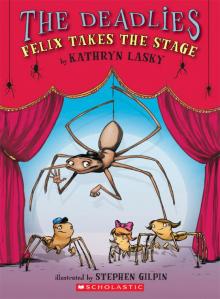 Felix Takes the Stage
Felix Takes the Stage Lucy
Lucy Lone Wolf
Lone Wolf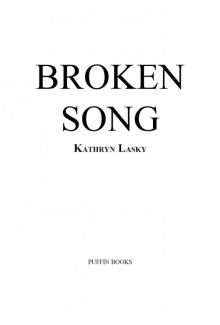 Broken Song
Broken Song The Shattering
The Shattering The Crossing
The Crossing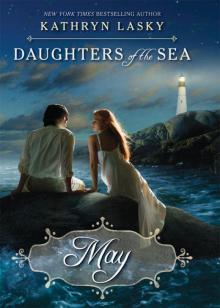 May
May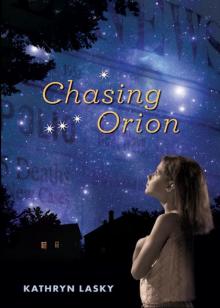 Chasing Orion
Chasing Orion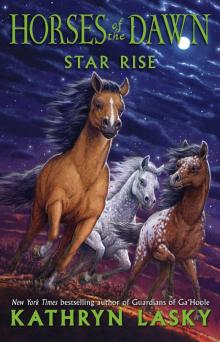 Star Rise
Star Rise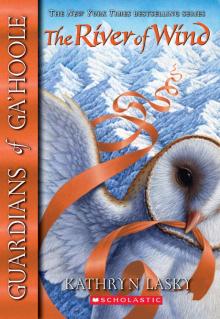 The River of Wind
The River of Wind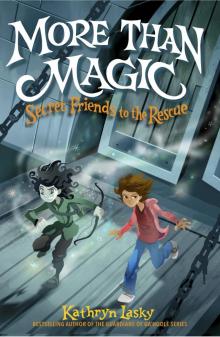 More Than Magic
More Than Magic Born to Rule
Born to Rule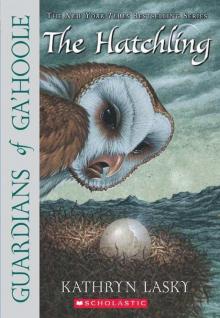 The Hatchling
The Hatchling The Rescue
The Rescue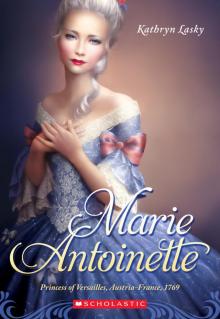 Marie Antoinette: Princess of Versailles, Austria - France, 1769
Marie Antoinette: Princess of Versailles, Austria - France, 1769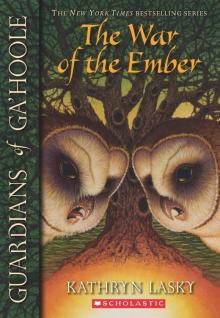 The War of the Ember
The War of the Ember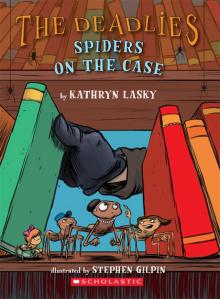 Spiders on the Case
Spiders on the Case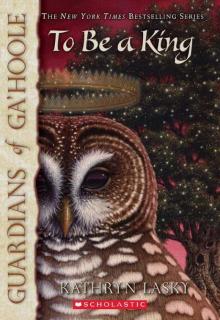 To Be a King
To Be a King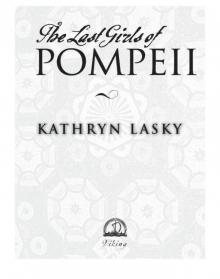 The Last Girls of Pompeii
The Last Girls of Pompeii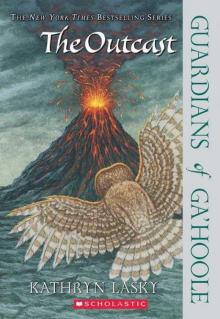 The Outcast
The Outcast Exile
Exile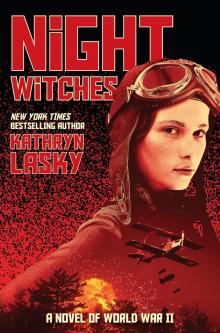 Night Witches
Night Witches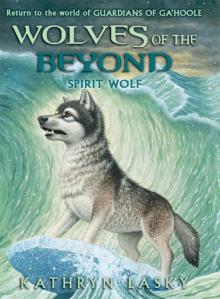 Spirit Wolf
Spirit Wolf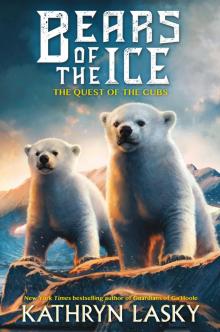 The Quest of the Cubs
The Quest of the Cubs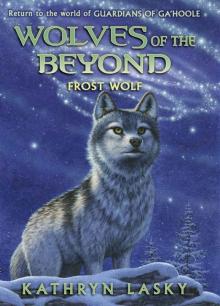 Frost Wolf
Frost Wolf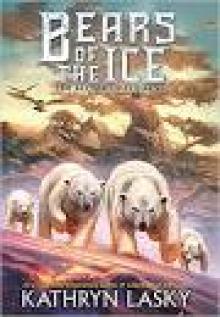 The Keepers of the Keys
The Keepers of the Keys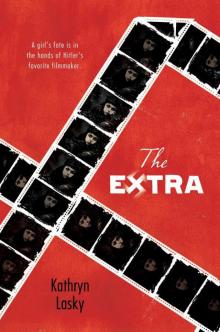 The Extra
The Extra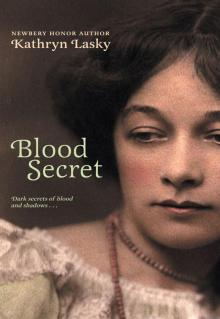 Blood Secret
Blood Secret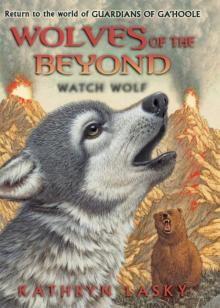 Watch Wolf
Watch Wolf Blazing West, the Journal of Augustus Pelletier, the Lewis and Clark Expedition
Blazing West, the Journal of Augustus Pelletier, the Lewis and Clark Expedition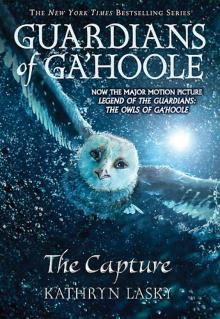 The Capture
The Capture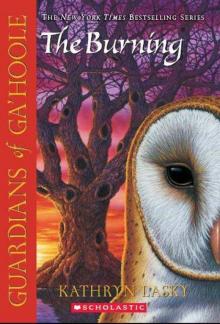 The Burning
The Burning The Journey
The Journey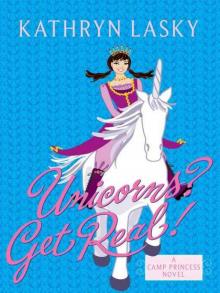 Unicorns? Get Real!
Unicorns? Get Real! The Escape
The Escape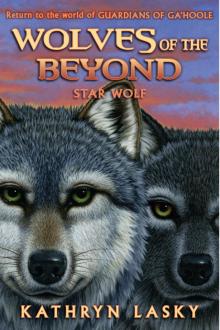 Star Wolf
Star Wolf Ashes
Ashes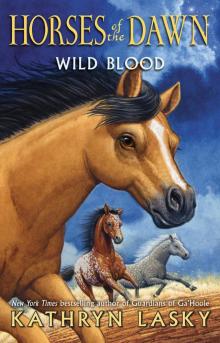 Wild Blood
Wild Blood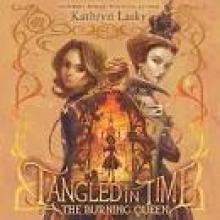 Tangled in Time 2
Tangled in Time 2 The Siege
The Siege Hannah
Hannah Elizabeth
Elizabeth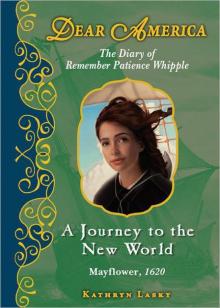 A Journey to the New World
A Journey to the New World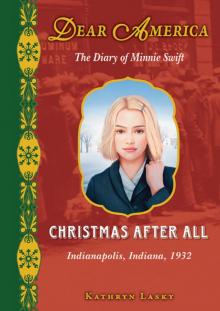 Christmas After All
Christmas After All Mary Queen of Scots
Mary Queen of Scots